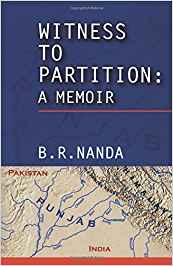Looking at ‘India’ from the long-drawn historical point of view, it is a country (and an idea as well) that has primarily grown by accretion. The inclusion and subsequent exclusion of Burma both were peripheral colonial acts. The Partition of India in 1947 was significantly different inasmuch as it was made by the peoples of India as much as by the colonial power. Before the country was divided, the peoples of India had become divided through their own numerous acts of commission and omission. Everybody was responsible for it in some measure, nobody was entirely innocent. In short, the Partition of India was a unique historical event. (The secession of its ‘eastern wing’ from Pakistan in 1971 is yet another story altogether.)
Inevitably, a great deal has been written about Partition from a variety of mostly ‘macro’ perspectives, whether of the colonial power, the secular ‘national’ movement for a free united India, or the demand for the creation of a ‘homeland’ for Indian Muslims.

